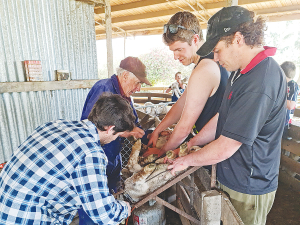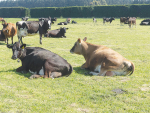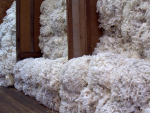A recent review, released at the end of last month, suggests change is needed in how regulations that impact animal welfare are made.
The Briefing on Animal Welfare Secondary Legislation report from the Regulations Review Committee report calls for a review of how legislation secondary to the Animal Welfare Act 1999 is made. This would include numerous regulations and codes of welfare.
It follows on from a 21 September hearing with the New Zealand Animal Law Association (NZALA) about its report, Farmed Animal Welfare Law in New Zealand: Investigating the Gap between the Animal Welfare Act 1999 and its Delegated Legislation.
The committee’s report found a gap between the standards of animal welfare envisioned in the Animal Welfare Act 1999 and the standards set out in the codes of welfare and regulations made under the Act.
Within the Act, the report states, Section 183A grants the Minister of Agriculture the power to issue codes of welfare on the recommendation of the National Animal Welfare Advisory Committee (NAWAC) and to recommend regulations to the Governor-General.
Where that has become a problem, the report claims, is when these regulation-making powers allow for the making of regulations that provide for standards of care that do not meet obligations set out earlier in the Act.
Currently, the report claims, only two regulations – made under the Animal Welfare (Care and Procedures) Regulations are made specifically relying on Section 183A. Both relate to the treatment of pigs and both are set to be revoked on 18 December 2025.
A spokesperson from the Ministry for Primary Industries (MPI), one of two agencies charged with enforcing the Animal Welfare Act, told Rural News the Animal Welfare Regulations have set specific requirements for conduct towards a range of animals in specific scenarios, for example, dogs in vehicles, transportation of animals.
“They also clarify who can carry out certain surgical procedures on animals and how they should be done. The regulations allow for better enforcement of low to medium-level offending, where breaches of regulation may not meet the threshold for prosecution under the Act,” they said.
Meanwhile, the Royal Society for the Protection and Care of Animals (SPCA), another agency in charge of enforcing the Animal Welfare Act, says it welcomes the recommendations from the committee.
SPCA scientific officer Marie McAninch says the recommendation of a review signals a positive step in the right direction in addressing the current challenges within the animal welfare system.
“SPCA has long been advocating for more frequent reviews of the secondary animal welfare legislation, some of which is fast falling out of date with current science and best practice,” says McAninch.
“We are so pleased to see this step and look forward to working alongside Government to assist in the process,” she says. “Acting as the voice for the animals, we feel strongly that animal welfare needs to be at the centre of decision making.”
The SPCA has advocated multiple times for a review of all codes of welfare every three years.
“SPCA has taken the initiative to draft several codes of welfare for companion animals because they were not receiving the necessary priority,” McAninch says.
One specific example of missing regulations relates to the permanent chaining of dogs, an area in which there are no enforceable standards.
McAninch says the absence of those enforceable standards has posed significant challenges for Animal Welfare Inspectors in their ability to effectively enforce the Animal Welfare Act.
“Our ability to ensure animals are getting the best possible outcomes in New Zealand hinges on the legal system that surrounds them,” she says.
“This report is another piece of evidence indicating that the animal welfare system needs more oversight. Our organisation agrees that one way to ensure this oversight of the animal welfare system would be the appointment of a Commissioner for Animals in New Zealand, in addition to the continuing work of the Ministry for Primary Industries, SPCA and existing Animal Welfare Committees.”











